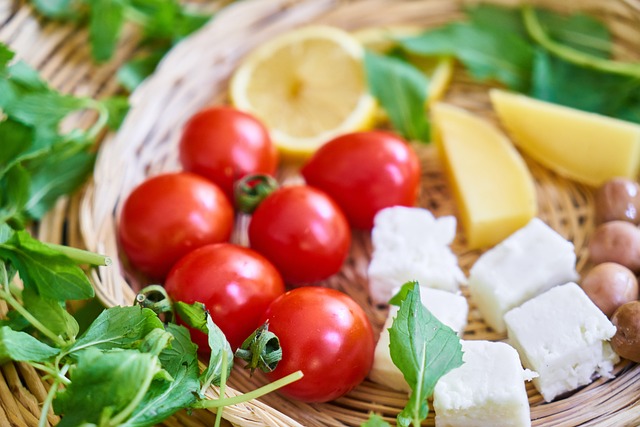Cancer is a deadly disease that occurs when cells in the body begin to grow uncontrollably. It is one of the leading causes of death worldwide, with millions of people affected every year. Although there is no sure way to prevent cancer, there are some dietary habits that may help reduce the risk of developing certain types of cancer .
Here are some healthy food intakes to keep in mind:
1. Fruits and vegetables : Fruits and vegetables are an excellent source of vitamins, minerals, and antioxidants that are essential for overall health. Studies have shown that a diet rich in fruits and vegetables can help reduce the risk of certain types of cancer, such as lung, stomach, and colorectal cancer. It is recommended to eat at least five servings of fruits and vegetables per day.
2. Eat less red and processed meats : Protein is essential for the growth and repair of cells in the body. However, not all protein sources are equal. Lean protein sources such as chicken, fish and beans are a better choice than red meat and processed meat. Red meat and processed meat have been linked to an increased risk of colorectal cancer.
Red and processed meats, such as beef, pork and hot dogs, have been linked to an increased risk of colon, stomach and pancreatic cancer. Try to limit your intake of these types of meat and choose lean sources of protein such as poultry, fish and legumes instead.
3. Whole grains : Whole grains like brown rice, whole wheat bread and quinoa are rich in fiber, vitamins and minerals. It is also a good source of antioxidants that help prevent cancer. A diet rich in whole grains has been shown to reduce the risk of colorectal cancer.
4. Healthy Fats Not all fats are bad for you. Healthy fats such as those found in avocados, nuts, and olive oil are essential for the body. They can help reduce inflammation in the body, which is a risk factor for cancer.
5. Cut back on sugar and processed foods : Sugar and processed foods have been linked to inflammation and an increased risk of cancer. Processed foods like chips, cookies, and sugary drinks are high in calories, sugar, and unhealthy fats. They have been linked to an increased risk of cancer. It is recommended to limit the consumption of processed foods and choose whole foods instead.
6. Include soy in your diet Soy foods, such as tofu and soy milk, contain compounds called isoflavones that have been linked to a reduced risk of breast and prostate cancer. Aim to include soy in your diet in moderation.
7. Stay hydrated : Drinking enough water is essential for overall health. It helps flush out toxins from the body, which reduces the risk of cancer. It is recommended to drink at least eight glasses of water per day.
8 . Maintain a healthy weight : Being overweight or obese increases the risk of developing certain types of cancer, such as breast, colon and pancreatic cancer. Maintaining a healthy weight through a healthy diet and regular exercise can help reduce your risk of developing cancer.
9. Choose low-fat dairy products . Dairy products are a good source of calcium and other nutrients, but some studies have linked high-fat dairy products to an increased risk of certain types of cancer. Try to choose low-fat dairy products such as skim milk, low-fat cheese and yogurt instead.
10. Include cruciferous vegetables in your diet : Cruciferous vegetables, such as broccoli, cauliflower and kale, contain compounds that have been linked to a reduced risk of several types of cancer. Aim to include these types of vegetables in your diet on a regular basis.
Here are some additional tips to help you incorporate these healthy food intakes into your daily routine:
1. Plan your meals in advance Planning your meals in advance can help ensure that you get a variety of fruits, vegetables and other healthy foods in your diet. It can also help you make healthy choices when you're pressed for time.
2. Try New Recipes Eating the same foods over and over can get boring quickly, which can make it difficult to stick to a healthy diet. Try looking for new recipes that feature healthy foods like fruits, vegetables, and whole grains to keep things interesting.
3. Snack on healthy foods Eating healthy snacks can help you avoid reaching for unhealthy options when you're hungry between meals. Some good choices include fresh fruits and vegetables, nuts and seeds, and whole-grain crackers.
4. Consider Portion Sizes Even healthy foods can contribute to weight gain if you eat a lot of them. Be mindful of portion sizes and try to eat slowly to give your brain time to register when you're full.
5. Get support from others Making dietary changes can be difficult, especially if you are used to eating a certain way. Consider asking a friend or family member for help who is also interested in making healthy changes, or joining a support group to help keep you motivated.
Conclusion
Remember, making healthy dietary changes is just one part of a comprehensive approach to reducing your risk of cancer. Other lifestyle factors, such as getting regular exercise, getting enough sleep, and avoiding tobacco, can also play a role in lowering your risk of developing cancer.

Comments
Post a Comment